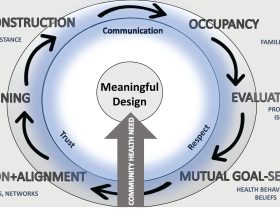Regular health checks are something many people push aside, especially when they feel healthy. But when it comes to cancer, waiting until symptoms appear can often be too late. Early detection through proper screening offers a real chance at stopping cancer before it spreads—or even before it begins. That’s why cancer screening in Singapore is not just an option, but an essential part of staying healthy.
Why Early Detection Matters
Cancer is most treatable in its early stages. Many types of cancer begin quietly, with no noticeable signs. By the time symptoms show up, the disease might already be advanced. Screening helps detect abnormalities before you even feel sick. Catching cancer early gives you more treatment options, better outcomes, and a much higher chance of survival.
Screening Is Not One-Size-Fits-All
Different types of cancer require different types of screening. For example, cervical, breast, colorectal, and prostate cancers all have specific recommended tests based on age, gender, and risk level. In Singapore, cancer screening guidelines are tailored to the population, ensuring that people receive the most appropriate tests at the right time.
If you’re not sure where to start, a healthcare provider can assess your risk and recommend which screenings you need. It’s a proactive step that could save your life.
The Role of Routine and Responsibility
Making screening part of your regular routine may feel uncomfortable or inconvenient, but the peace of mind it brings is invaluable. It’s not just about finding cancer—it’s about preventing it. For example, colonoscopies can identify and remove polyps before they turn cancerous. Pap smears can detect changes in cervical cells early enough to stop cancer from developing at all.
Taking responsibility for your health means acting before a problem arises. Cancer screening isn’t something you do for your doctor—it’s something you do for yourself and the people who care about you.
Dispelling Fear and Misconceptions
Many people avoid cancer screening due to fear. They worry about discomfort, possible results, or just the idea of facing something serious. But fear should never outweigh the benefits of early detection. Most screening procedures are quick, minimally invasive, and done in a safe, comfortable environment.
It’s also worth noting that getting screened doesn’t mean something is wrong. It means you’re taking charge of your health and ensuring you stay well.
Who Should Get Screened?
Screening isn’t just for people with symptoms. It’s designed for those without symptoms but who may be at risk due to age, lifestyle, or family history. For example, individuals over 50 should consider regular checks for colorectal cancer. Women in their 40s and beyond are encouraged to screen for breast cancer. And anyone with a family history of cancer may need earlier or more frequent tests.
In Singapore, access to cancer screening is widely available, and public health programs continue to raise awareness. It’s easier than ever to get the tests you need without delay.
Take the First Step Today
The thought of cancer is frightening, but ignoring it doesn’t make it go away. In contrast, taking the first step—booking a screening appointment—could be the turning point between early treatment and late-stage complications. You don’t have to wait until something feels off to take action.
Cancer screening in Singapore is built around accessibility, medical expertise, and timely intervention. It gives you the chance to protect your health before problems arise. A few minutes today could add years to your life.
Conclusion
Health is something we often take for granted—until it’s threatened. Cancer screening provides a way to stay ahead of serious illness through early detection and timely medical action. It’s not about fear. It’s about empowerment. Prioritizing cancer screening in Singapore can help you stay in control of your health and give you the best possible chance for a long and healthy life.







